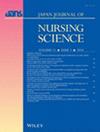Effect of premature infant oral motor intervention (PIOMI) and pacifier intervention on the transition to oral feeding in preterm infants: A randomized controlled study
Abstract
Aim
This study aimed to evaluate the effect of premature infant oral motor intervention (PIOMI) and pacifier intervention on the transition to full oral feeding in preterm infants.
Methods
This is a randomized controlled trial conducted between January 2021 and April 2023 in a neonatal intensive care unit in Eskişehir, Turkey. Preterm infants born between 29 and 34 weeks of gestation were included in the study. Infants were assigned to the groups by stratified randomization method. The study was completed with a total of 39 infants, 13 infants in each group (PIOMI, pacifier, and control). Data were collected using the “Preterm Infant Demographic Information Form,” “Feeding Monitor Form,” and “Early Feeding Skills Assessment Tool (EFS).” Statistical analysis used paired sample t-tests, ANOVA, Wilcoxon, Kruskal–Wallis H, and Pearson-χ2 test methods.
Results
In the research findings, it was determined that infants receiving PIOMI and pacifier intervention had a shorter length of stay, transition to full oral feeding compared to infants in the control group, and consumed a higher amount of feed in the first minute (p < .05). The infants in the PIOMI group started full oral feeding on average 3 days earlier than the infants in the pacifier group and were discharged approximately 4 days earlier (p > .05). It was determined that infants in the PIOMI group had significantly higher EFS-total compared to infants in the control group.
Conclusions
PIOMI intervention and pacifier intervention should be included in nursing care in neonatal intensive care units to improve the oral feeding skills of preterm infants and shorten their discharge time.


 求助内容:
求助内容: 应助结果提醒方式:
应助结果提醒方式:


